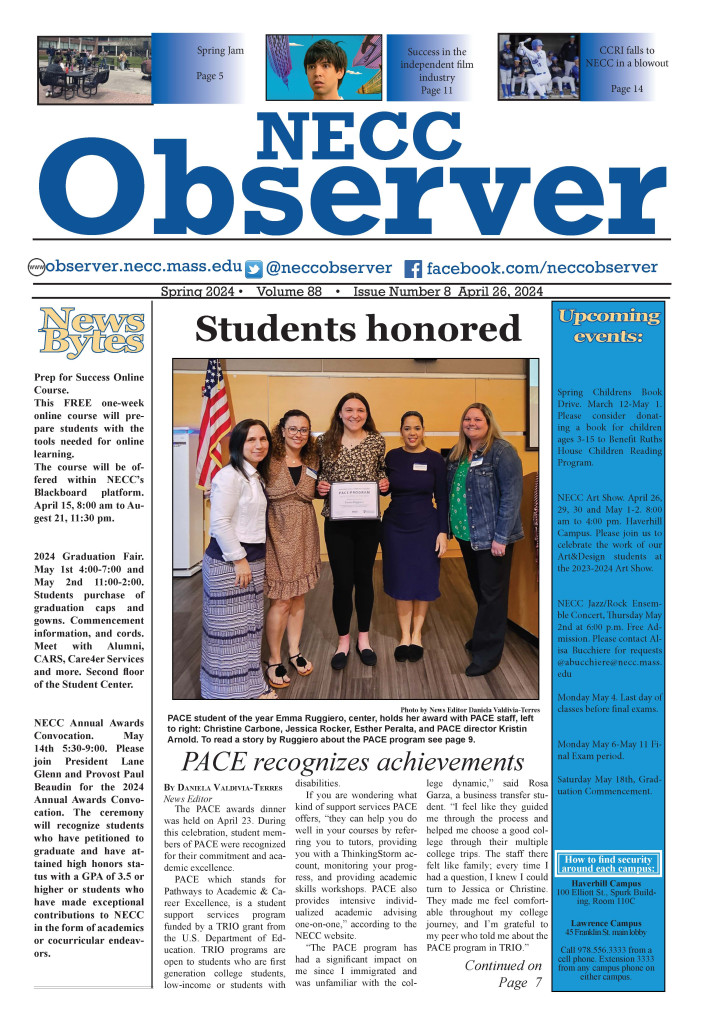It is human nature to wonder why we are here and to question what gave us license to our thoughts, the decisions we make, and what constitutes as truly being in the here and the now. We call it consciousness, and philosophers have questioned how to define it for centuries.
Paul Kelly, a philosophy major, held a low key discussion called “The Nature of Consciousness” in room C113 on Wednesday, Feb. 25. The talk began with a visual called stream of consciousness, a chaotic blend of flowing thought and color which is often what our thoughts feel like.
“This is sort of what consciousness is, it’s this sort of immediate awareness that we all have. It’s this sort of idea that we are somewhere behind the eyes and between the ears,” said Kelly. Consciousness is a subjective window of reality, no two people see the world the same way and through the same lens, making it a very difficult concept to define.
The idea of studying the sciences was brought up next because science studies a third person account and uses empirical evidence.
“The consciousness has this sort of intrinsic nature, something it feels like from the inside,” said Kelly as he presented the Andromeda analogy. “We can tell you a lot of things about Andromeda — we can tell how large it is, we can tell you very plausible stories about its origin, a lot of fantastic detail about Andromeda, but when it comes to consciousness there’s actually not much to say,” said Kelly.
Science can explain how the physical brain works and how stimuli can impact reactions, but it cannot explain consciousness with a concrete definition.
“In terms of the subjectivity of it, science is actually rather silent on that,” said Kelly.
There is this maddening paradox that consciousness is always with us and a part of us, a familiar friend for who is a better friend to you than your own mind? But at the same token it is a completely foreign concept that cannot easily be explained.
A large part of the discussion was focused on the correlation between consciousness and the physical brain.
“One of the things we learned is there is an intimate connection between the body and the mind,” said Kelly. “One of the famous cases was Phineas Gage. Phineas Gage was a railroad worker, and there was an explosion and one of the rods penetrated his head. He miraculously survived, the people afterwards said he was a totally different person. All of his major personality traits had totally inverted he was now a nasty sort of fellow and people said that he was not even the same person,” said Kelly.
Another example brought up was about a school teacher who was arrested for making sexual advances towards his stepdaughter, and when examined for a severe headache doctors found a brain tumor. As soon as the tumor was removed all sexual desires went away. The court threw out his case on the grounds that is was a physiological cause beyond his control. The urges came back, but he had another brain tumor. It raises the question of how responsible someone can be for their stream of consciousness based on their physiological health.
The notion of free will was explored as well.
“If you think that we’re the brain, then there’s this sense that we shouldn’t be disturbed by the fact that the brain is making decisions for us. Because when you use that language ‘decisions for us,’ you’re assuming a sort of duality between yourself and the brain,” said Kelly.
The language barrier Kelly refers to can be analogous to in casual conversation. One might refer to a table as simply a table, but in a physics class you would refer to it as particles.
“When it comes to free will, we have to be careful about making false dualisms. It is going to depend on what we take ourselves to be,” said Kelly.
The topic of “over-inflation” of consciousness was brought to the table. Scientist argue that people tend to have more mystical views of consciousness and tend to over inflate those views of what consciousness actually amounts to. The scientists try to sort of beat it back down to size, and say that although people think we are immediately in touch with the physical world, they are not.
“If you look into say physics, the speed of light is finite so we’re not actually in touch with the world, we’re actually in touch with the world a few moments ago. We’re actually looking at a construction, we’re not looking at the world as it really is,” said Kelly. The point Kelly is trying to make is that we are subject to our own perceptions and perhaps illusions of what reality is.
Consciousness, although explored for centuries by philosophers, scientists, psychologist and the like still eludes a concrete definition as everyone’s window to the world is in a different hue. If any students or staff interested in attending philosophical discussions, check your email and the notice boards around campus.

